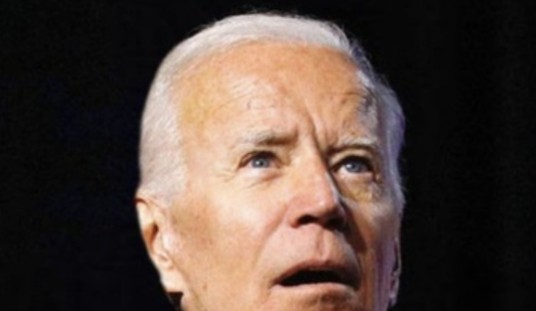Barack Obama heads down to Savannah, Georgia today to attempt to sell the notion that his Porkulus policies saved and created jobs in a year that saw more than four million jobs disappear. Luckily for the President, the Washington Post has come along for the ride. Actually, that may be a little unfair to reporter Michael Fletcher, who at least notes the deep skepticism waiting for Obama as he arrives in what Fletcher rightly calls “this charming coastal city,” but Fletcher could use a little of that skepticism himself:
To hear President Obama tell it, his plans for reshaping the nation’s economy are aimed at helping people like Ray Gaster, whose small chain of lumberyards here has been walloped by the recession.
Gaster’s business has plummeted by more than two-thirds since 2006. At the same time, health insurance costs are becoming an increasingly heavy burden. Yet Gaster has nothing but skepticism for Obama policies designed to lighten that load. He says the economic stimulus package has been all but invisible to his business, and he fears the White House’s renewed effort at overhauling health care would only make a bad situation worse.
“You know what it’s like working with the government. It’s just impossible,” he said. “The health-care system we have now isn’t perfect, but at least it works.”
Obama plans to visit this charming coastal city on Tuesday to lead a day of meetings aimed at highlighting his economic policies and shoring up support for his ambitious but endangered domestic agenda. Success could ultimately turn on his ability to reshape perceptions of a stimulus plan that the White House says has pumped more than $130 million into the local economy, but many here grumble about what they see as its lack of effectiveness.
The problem is that the money hasn’t gone “into the local economy.” It’s gone into the local and state bureaucracy. Fletcher regurgitates White House talking points while condescending towards local residents who disagree:
Even amid the complaints, the economy here has held up better than most. Savannah’s unemployment rate is 8.4 percent, well below the national rate of 9.7, thanks to the throngs of tourists who wander the city’s sprawling historic district, the bustling port and the city’s proximity to major military installations, including Fort Stewart, Ga., and the Marine Corps installation at Parris Island, S.C.
The stimulus plan has played a role, too, although not everyone recognizes its impact. The plan provided $33 million to perform maintenance dredging and spoil containment in the port, millions more to keep teachers on the payroll, money to weatherize some public housing units and demolish others, support for people thrown out of work and tax breaks for 95 percent of workers and many small businesses.
How many David Axelrod talking points did you spot? The “tax breaks for 95 percent of workers” should be the first clue. That one got ripped during the campaign by fact checkers, and it’s even less true now. Fletcher merely repeats it here verbatim without a moment of skepticism. Rescuing teacher jobs is another myth. Money got provided to state governments in block grants, who then applied it to education budgets while shifting cash to save other, less popular bureaucratic jobs. That allowed the states and Obama to claim that the money rescued teachers and first responders from the budget axe when those jobs were never in jeopardy — something Fletcher’s colleagues around the country reported months ago.
Weatherization as economic stimulus is a myth that Fletcher’s own interview subject rebuts before he trots it out in this paragraph:
Asked whether the stimulus’s weatherization provisions have helped him sell business supplies, he feigned disbelief. “If I had to depend on weatherization,” he said, “I’d be out of business.”
As it turns out, the folks in Savannah are a lot more skeptical of politician’s claims than the hard-nosed, big-city reporter:
His firm offers health insurance to workers, which costs the company $425,000 a year, even though only two-thirds sign up for it. Other employees are covered by their spouses, and maybe 10 percent, Cook estimates, go without.
He wants health-care reform, but he does not want government to play a big role in the final product. “The things we heard about health care as a business owner are scary,” he said. “That puts the brakes on decision making. You certainly aren’t going to make any decisions to expand.”
Cook said the best way to get business people like him to hire more workers is to have government lower taxes while easing up on mandates and regulations. “I know people laugh at the term ‘trickle-down economics,’ ” he said. “But it works. I hire more people, they get to spend money, and so on.”
Of course they laugh at private-sector economics. They get talking points from the White House, Mr. Cook! All you know is how business actually works. Rubes.
It sounds like the people of Savannah have a better grip on economics than the White House and the Washington Post — and they may make better journalists, too.








Join the conversation as a VIP Member